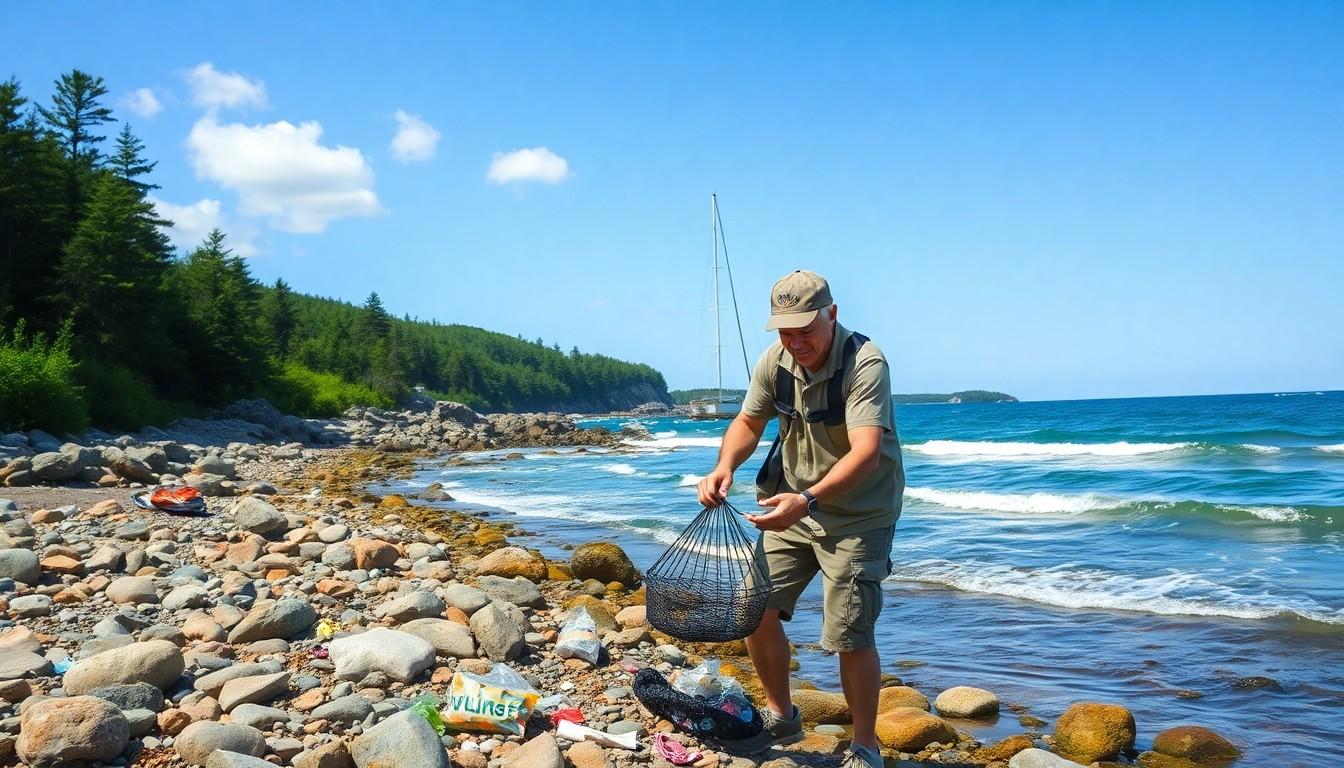Phone:
(701)814-6992
Physical address:
6296 Donnelly Plaza
Ratkeville, Bahamas.

Maine’s environmental news is like a box of chocolates—full of surprises and sometimes a little nutty. From the stunning coastline to the lush forests, this state is a treasure trove of nature’s wonders. But beneath its picturesque surface, important stories are unfolding that impact both the environment and the people who call Maine home.
Maine’s environmental news reflects the state’s rich ecological diversity and pressing challenges. Recent reports highlight the importance of protecting Maine’s coastlines from erosion and pollution. Efforts to mitigate the impacts of climate change, such as rising sea levels and changing weather patterns, are critical to preserving natural habitats.
State authorities and organizations emphasize the need for sustainable forestry practices to ensure the health of Maine’s vast woodlands. Wildlife conservation initiatives focus on protecting endangered species like the Atlantic salmon and the Maine black bear. Increasingly, community engagement drives local environmental movements, promoting awareness and action on issues such as plastic waste reduction and clean energy adoption.
Legislative developments shape the environmental landscape as well. Recent bills aim to strengthen regulations on emissions and encourage renewable energy projects throughout the state. Public sentiment generally supports these initiatives, reflecting residents’ desire for a cleaner, healthier environment.
Maine’s vibrant environmental journalism continues to track these changes, providing updates on local efforts and state policies. The interplay of natural beauty and environmental advocacy creates a dynamic narrative. Engaging stories and data underscore the urgency of addressing relevant ecological concerns while celebrating Maine’s unique landscapes.

Maine faces numerous environmental challenges that demand attention and action. These issues affect both the ecosystem and the well-being of its residents.
Climate change poses significant threats to Maine’s ecosystems. Rising sea levels threaten coastal communities, leading to increased flooding and erosion. Unpredictable weather patterns disrupt farming, impacting crop yields and food security. As temperatures rise, forest health suffers from pests and diseases that thrive in warmer conditions. Marine life also faces challenges; acidifying oceans affect fish populations crucial to Maine’s economy. Adaptation strategies aim to bolster resilience against these changes, emphasizing the urgency of mitigating climate effects.
Conservation efforts remain vital to Maine’s environmental health. Organizations work tirelessly to protect endangered species, like the Atlantic salmon and the Maine black bear. Wildlife corridors are established to enhance habitat connectivity, allowing species to thrive. Sustainable forestry practices promote forest health and biodiversity while benefiting local economies. Community-driven initiatives encourage residents to participate in conservation through clean-up events and educational programs. Maine’s commitment to renewable energy projects reflects a growing focus on sustainability and resource preservation. These initiatives collectively support the state’s unique ecosystems and natural heritage.
Maine’s environmental landscape continues to evolve with significant updates and efforts across the state.
Recent legislation aims to strengthen emissions regulations across industries. New bills focus on renewable energy incentives, promoting solar and wind projects. Enhanced funding for climate resilience programs will support coastal communities facing rising sea levels. Strengthening environmental protections for Maine’s waters also remains a priority. These legislative shifts reflect growing public support for sustainable practices. Local lawmakers emphasize the need for comprehensive policies to address climate challenges. Community feedback plays a critical role in shaping these initiatives, ensuring alignment with resident values.
Community initiatives are emerging to address environmental concerns locally. Residents engage in beach cleanups to combat coastal pollution and protect marine ecosystems. Local organizations organize tree-planting events, enhancing forest cover and biodiversity. Innovative programs promote recycling and waste reduction, encouraging sustainable living practices. Educational workshops help residents understand climate impacts and empower them to take action. Collaboration among community members fosters stronger environmental stewardship. Engaging the public in these efforts creates a unified approach to protecting Maine’s unique landscapes.
Maine hosts various environmental groups dedicated to preserving the state’s natural resources and ecosystems. These organizations play key roles in advocating for sustainable practices and raising awareness about local environmental issues.
The Natural Resources Council of Maine (NRCM) champions policies that protect land, air, and water. They focus on climate change solutions and promote renewable energy initiatives. Maine Audubon emphasizes the conservation of wildlife and their habitats. Their education programs engage communities to foster a strong conservation ethic. The Sierra Club Maine works to influence legislation and mobilize grassroots efforts for environmental protection. Additionally, Friends of Casco Bay monitors water quality and advocates for marine conservation in the Casco Bay region. Each organization’s unique focus contributes to the collective effort of maintaining Maine’s ecological integrity while addressing challenges like climate change and pollution.
Maine’s environmental landscape is dynamic and full of potential. The state’s commitment to sustainability is evident through community engagement and legislative efforts. As challenges like climate change and pollution persist, the collaborative actions of residents and organizations will play a crucial role in shaping a healthier future for Maine’s ecosystems.
By prioritizing conservation and promoting renewable energy, Maine can ensure its natural beauty endures for generations to come. The ongoing dialogue around environmental issues highlights the importance of collective responsibility and the power of informed advocacy. Maine stands as a model for balancing ecological integrity with economic vitality, showcasing the strength of community-driven initiatives in fostering a sustainable environment.